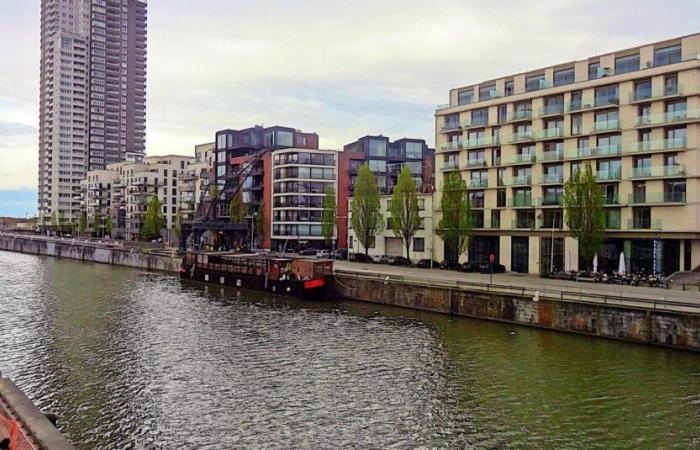The Belgian was bottle-fed at the real estate property. The proportion of owners remains stable over the years. However, the difficulties in accessing property as well as the new aspirations of certain young people could change the balance of power.
Will Belgium one day follow the path of Germany and Austria, two countries which have almost as many owners as tenants? It would take a huge turnaround in the policies put in place to achieve this. Because Belgium remains for the moment a land of owners. According to the latest statistics from Eurostat, the statistical office of the European Union, in 2023 it had 71.9% owners. A figure that has been stable for 20 years (72.7% in 2003). The Belgian real estate landscape remains marked by decades of policies – federal and regional – which encourage access to property. The final wishes of the Walloon executive only reinforce this aspect.
If the desire to lower registration fees to 3% in Wallonia from 1is January 2025 is confirmed (to reach the same level as Flanders), the proportion of owners could further increase. Not to mention the fact that, given the tax competition that will be established between the three Regions of the country, Brussels will be obliged, at one time or another, to follow suit and reform its real estate taxation. So many elements that converge to reinforce current trends.
Most studies or surveys published in recent months confirm this desire to become an owner. And this while global perspectives have nevertheless affirmed in recent years that generations Y and Z are no longer attached to property and the heavy weight of credit, wanting to live in a lighter way.
“We see it in our credit statistics: young people under 30 still want to be owners,” says Marc Delforge, head of credit at BNP Paribas Fortis. Twenty-nine percent of our loans were granted to people under 30 in 2023. I do not see the proportion of owners changing as long as tax incentives encouraging access to property persist. Being the owner of your home is reassuring. Whether you are young or old. I think that those who cannot currently access property will wait while they build up the necessary equity.”
“I don’t see the proportion of owners changing as long as tax incentives encouraging access to property persist.” – Marc Delforge (BNP Paribas Fortis)
However, all is not rosy, with the economic context calling for caution. Several elements risk causing the proportion of the number of owners to decline. The deterioration of financial accessibility to housing is forcing more and more Belgians to stay longer on the rental market. A study by the National Bank (BNB) notes that the property rate among the least financially well-off households – that is to say those whose income is less than 60% of the equivalent median income – has fallen significantly, falling from 56 to 40% over the last 29 years. A reduction which could further increase in the future. An ING survey shows that the vast majority of tenants (64%) would like to buy housing but that they cannot currently afford it. Figures which suggest that Belgians consider renting as an intermediate step to save money.
“There is a good chance that the number of owners will fall below 70% for the first time in the years to come,” notes ING. An observation shared by Kim Ruysen, director of the Trevi real estate network: “The first accession is becoming more and more difficult. If the desired type of housing cannot be found, you must therefore purchase smaller or less energy efficient housing. Another alternative would be to inflate the rental market. Or to embark on cohabiting. Finally, the last possibility will be to move and live in an area where prices are lower, so as to get your hands on the accommodation of your choice.” As a result, those who want to stay and live in the city they want must increasingly turn to the rental market. “We can clearly see this in Brussels,” continues Kim Ruysen. Some neighborhoods are inaccessible to young people who do not receive financial assistance.”
The appeal of cities, the rental asset
Let us add that the expected increase in the number of isolated households (36% out of 5 million households, according to Statbel data) combined with the rise in prices will push more and more of them towards the rental market. Not to mention those who, victims of a life ordeal (loss of a job, divorce, accident) also risk moving away from property. “I am convinced that the number of tenants will increase,” Jean-Baptiste Van Ex, CEO of Vicinity Affordable Housing Fund, told us recently. There were 60% owners in Brussels 20 years ago, there are now only 47%. This observation can be extended to other large Belgian cities. The future is city living and living in quality housing. In some cases, only rental can offer this combination. This is a fundamental trend that will change the real estate market. Not only because people no longer have the means to buy, but also because our behavior requires more flexibility, both professionally and privately. Rental accommodation responds more to our ways of living. And then, if some are forced to be tenants, others choose to be. This also allows you to use your savings for other expenses.”
Not to mention the fact that some people believe that wanting to own your home can clearly make you lose your sanity somewhat on an economic level. “Becoming an owner is reassuring,” says economist Roland Gillet, professor at the Sorbonne (Paris 1) and ULB (Solvay). Parents encourage their children to take this path. It is a form of objective to achieve and it contributes to social success. It also provides some stability regarding future events.” There is nevertheless, in certain cases, a form of unreason in wanting to go into debt for such a long time. “What drives up real estate prices is our ability to agree to pay more for real estate to satisfy our pleasure,” continues Roland Gillet. Emotional has nothing to do with functional cost. Real estate prices in Belgium are somewhat overvalued. We therefore become owners mainly for pleasure because the cost of a loan and transfer costs are very high. On the other hand, if an event takes place in your life, such as a death or divorce, being a tenant allows you to have more equity and more flexibility. Your savings are not entirely devoted to registration fees.”






